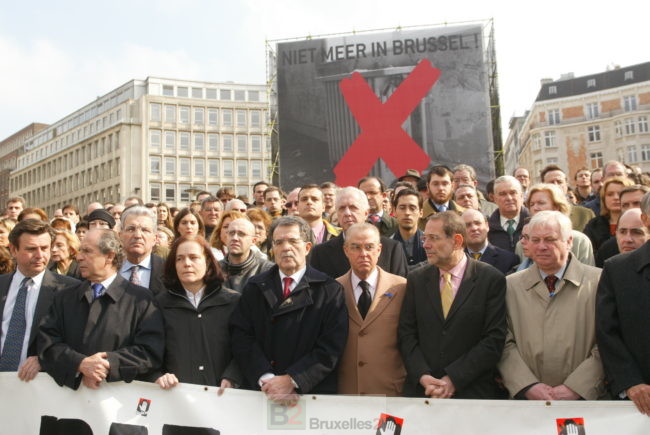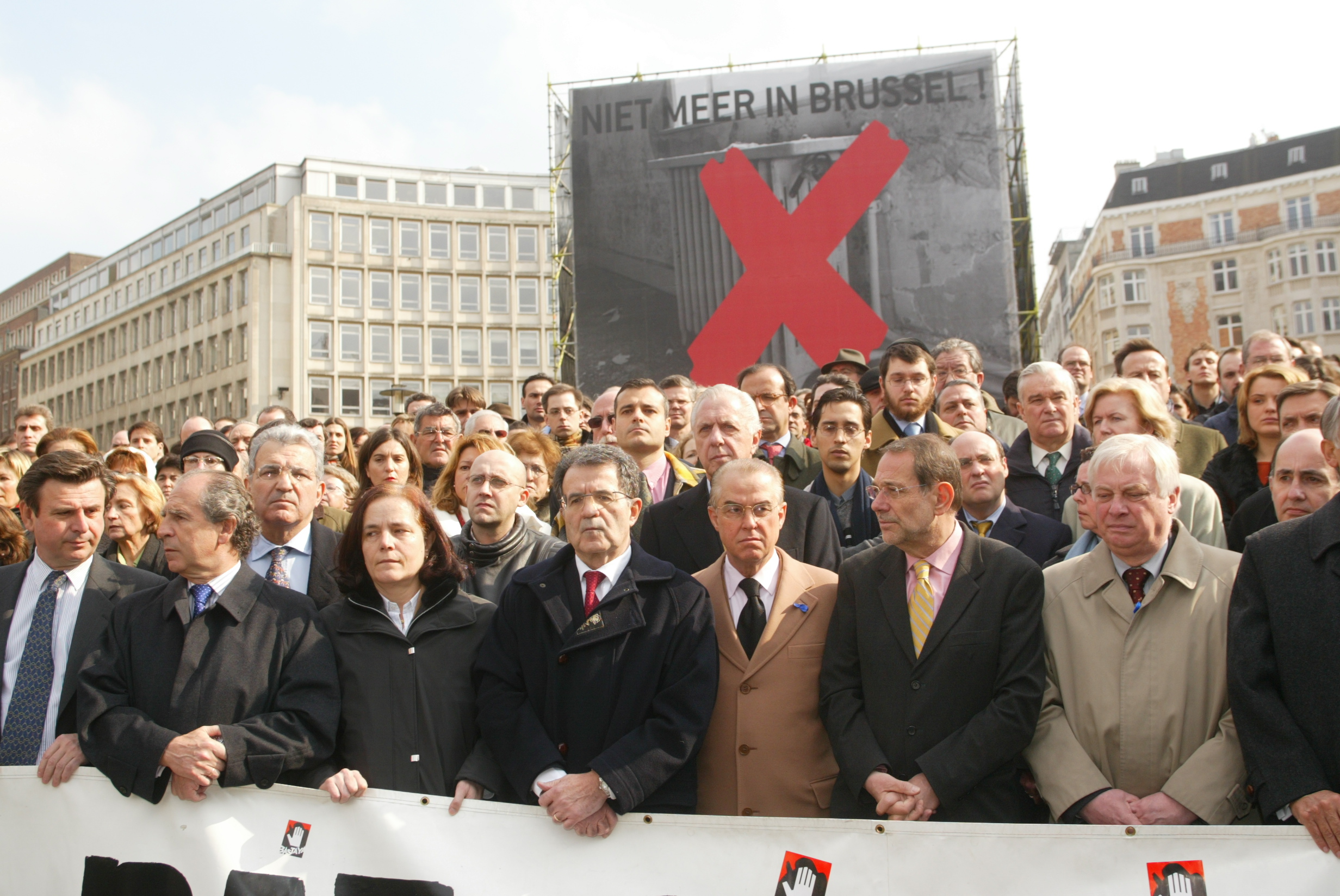Europe mobilizes against terrorism
(Archives B2) Since the attacks that hit Madrid last Thursday (March 11 2004), home affairs specialists in Brussels are in turmoil

A series of meetings
Today, the ordinary meeting of ambassadors (Coreper) of the 25 countries of the enlarged European Union will have only one file on its table: the fight against terrorism. Unusually, the European Commissioner for Justice and Home Affairs, Antonio Vitorino, will also be present at lunch. Friday, it will be the turn of the interior ministers to discuss the issue, during an exceptional meeting. They will be relayed on Monday by the Ministers of Foreign Affairs before giving way to Heads of State and Government at the end of next week. Common objective of all the 'suits and ties': to give a boost to European cooperation in the fight against terrorism.
A few steps taken, but with one foot, limping
For almost ten years — and a certain European summit held, curiously as a premonition, in Madrid in 1995 — Europe has not remained totally inactive. Especially after September 11, 2001 and the attacks in New York. Several measures have been adopted in terms of judicial cooperation, the designation of terrorist entities or the fight against money laundering. But this progress was made with one foot, limping. If, willy-nilly, the judges indeed find a way to cooperate with each other – the European arrest warrant has just been put in place – it is not the same for the police or intelligence services.
Instruments exist, little used
A few days before the attacks in Madrid, Javier Solana, the Secretary General of the Council of Ministers, already underlined, in a confidential report, the reluctance of States to share their information, the slowness and the lack of coordination of the actions undertaken. Instruments exist, he wrote. " But they are little used or understood by law enforcement and judicial authorities in some states ».
'We tried Europol, it didn't work'
Certainly an office called Europol, supposed to be an embryo of European police, does exist in The Hague. But its operation is erratic to say the least. From time to time, he manages to coordinate an operation to seize drugs. The reason ? " It's simple explains an expert from the European Commission, Europol does not have the necessary cooperation from the intelligence services. It's not really new. Even at the national level, intelligence services do not like to share their information with the police. So what is required of them today. It is a real cultural revolution. »
« Europol — added a diplomat — they waste a lot of time on bureaucracy. Imagine. The steering committee has 100 people. How do you want him to be involved in terrorism cases, where trust is one of the basic conditions for success ».
A European intelligence office
Using an advertising slogan, the Belgian Prime Minister, Guy Verhofstadt asserts, for his part with the direct speech that characterizes him, " We tried Europol. It didn't go very well ". And to advocate instead the creation of a " European office for bringing together intelligence analyzes ».
The idea of a European agency for the fight against terrorism, of a European FBI, was launched a few months ago by the Austrian Chancellor, Wolfgang Schlüssel. But it has so far been treated with condescension by some countries like France or the United Kingdom. It could resurface tomorrow! " You have to seriously think about it “considers Reijo Kemppinen, the spokesperson for Romano Prodi, the President of the European Commission” This is not the day to criticize. Today all ideas are good "...
In fact, when it comes to terrorism, what is most needed is more Europe, whatever form it takes.
(Nicolas Gros-Verheyde, in Brussels)
Article enriched with a first version published in France-Soir on March 17, 2004
